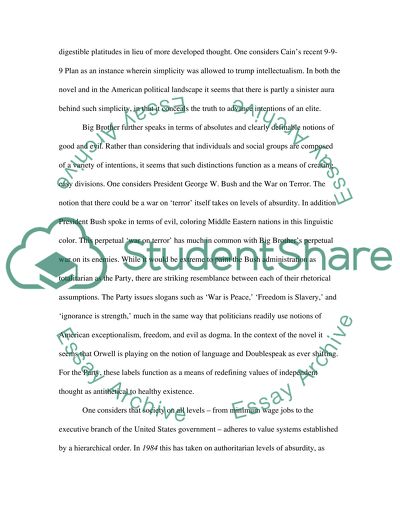Cite this document
(“George Orwell's 1984 Book Report/Review Example | Topics and Well Written Essays - 1000 words - 1”, n.d.)
Retrieved from https://studentshare.org/literature/1443028-george-orwell-s
Retrieved from https://studentshare.org/literature/1443028-george-orwell-s
(George Orwell'S 1984 Book Report/Review Example | Topics and Well Written Essays - 1000 Words - 1)
https://studentshare.org/literature/1443028-george-orwell-s.
https://studentshare.org/literature/1443028-george-orwell-s.
“George Orwell'S 1984 Book Report/Review Example | Topics and Well Written Essays - 1000 Words - 1”, n.d. https://studentshare.org/literature/1443028-george-orwell-s.


